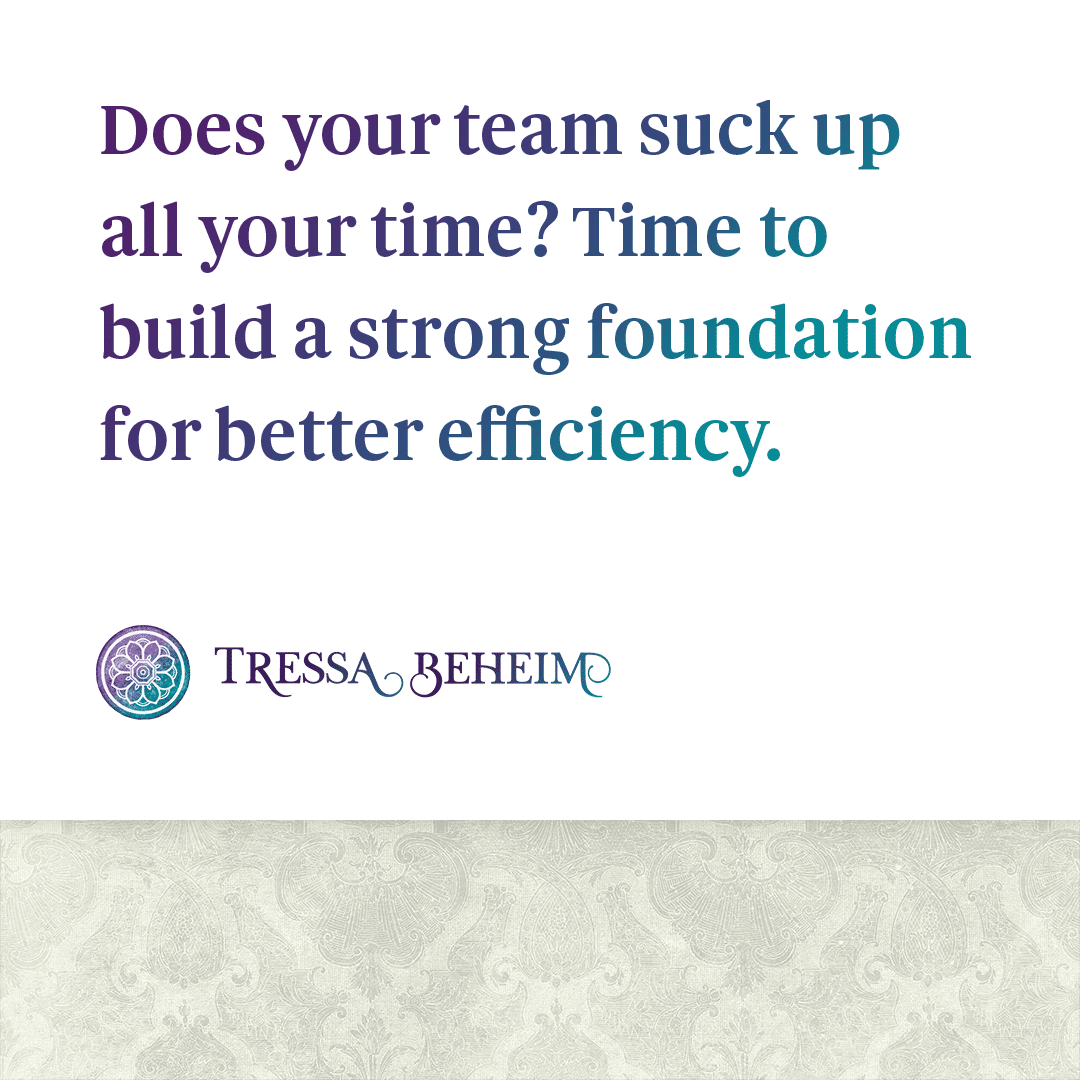One of the most common objections to utilizing a team is the belief that having a team is going to suck up all your time. This can be true in many cases, but if you take the time to build a strong foundation with your team, it can be avoided.
There are three common ways that teams suck up your time:
- You spend all your time answering questions — often the same ones over and over again.
- You spend too much time looking for statuses or deliverables from your team.
- You spend way too much time fixing things or redoing work your team has completed.
If you’re experiencing these in your business, it’s very likely you need to build a strong foundation that supports your team better so they can more effectively help you! You can make the changes you need to ensure your time is better spent on things only you can do, while your team works on their tasks more independently and effectively.
When it comes to repeatable tasks in your business, systems help to build a strong foundation that allows your team to better support you with far fewer questions. Think about things in your business that are done the same way over and over again and start there. Create step-by-step procedures that document how the tasks need to be completed, so someone else can follow your preferences without asking you questions constantly.
These types of procedures help with things, like blog posts, newsletters, social media posting, invoicing, onboarding, and so much more. You can build a strong foundation through systems by starting small. Make it a goal to document one thing per week or month. As time passes, you’ll have a library of systems your team can use to complete tasks and greatly reduce the number of questions you have to answer day in and day out.
But Why Can’t I Ever Find Anything?
This is another common issue clients complain about when working with teams. When you are working on your own, it’s usually easier to keep track of things either in your head or from your inbox. But when you add in additional team members, keeping track of statuses and deliverables becomes exponentially more challenging without the proper setup.
You can build a strong foundation for your team by using a dedicated project management tool to organize and keep tabs on to-dos and larger projects. There are plenty of free tools like Asana, Trello, and Todoist [add links], so you don’t have to spend a fortune here. You can also use a paid option without breaking the bank. For instance, Basecamp 2 starts at $20/mo, and Clickup starts at $5/mo.
Utilizing a project management tool allows everyone on the team to access relevant information on a task in the same place. It also gets the information out of the inbox and makes it easier to find when you need to know the status — and often without needing to email or message someone and wait for their response.
But It’s Never Done Right
If you commonly feel like you’re redoing work after your team has delivered it to you or sending it back for substantial revisions, you likely need to spend some time establishing guidelines and expectations for what you want to see in completed tasks.
For instance, creating a style guide that outlines the do’s and don’ts for your brand can help address little things that you’re constantly correcting. Think through anything you commonly correct and start documenting them. Something as simple as a brand guide can help your team use the right colors, fonts, and word choice that you prefer.
You can also establish a process for quality control that should happen before it gets to you. For instance, ensuring your team runs some basic checks like spellcheck, grammar check, and a link check can greatly reduce what you need to update when you review an email test.
And, at the end of the day, don’t discount the need to uplevel your team if you are constantly redoing work. If you’ve created the tools to address this, and you’re not seeing consistent improvement, then you may need to take action. Don’t expect perfection from your team, but seeing the same issues over and over again — even with systems and quality controls in place — can be a sign that you need a new team member.
Build a Strong Foundation and Thrive
It may take longer than you’d like, but it is possible to build a strong foundation that allows your team to support you effectively and efficiently. If you’re feeling like your team is a huge time suck, take a few moments to jot down what’s happening and then start digging into the possible causes.
Once you can see why this is happening, you can start addressing it bit by bit!



